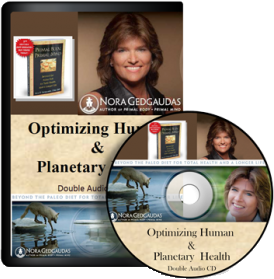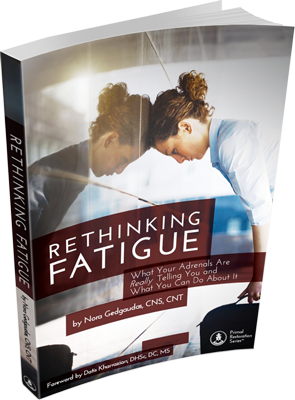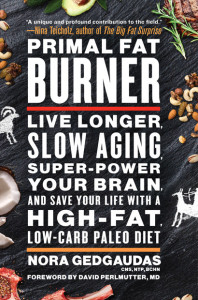High-Cholesterol Diets Can Speed Up Tumour Growth 100-Fold, Scientists Say
There is so much wrong with the article above and its associated study that it’s hard to know where to start.
First off, it reeks to high heaven of pharmaceutical interests. I guarantee there is Big Pharma payola behind this article and likely dubious ghostwriting behind the so-called study. It also appears to be a backlash-type article designed to muddy the waters following the plethora of peer-reviewed research and meta-analyses studies in recent years clearly and decisively exonerating saturated fat and cholesterol as culprits and heart disease, or metabolic disease in general.
Secondly, it is based on a mouse study— and mice are fundamentally herbivorous animals not designed to eat a significant amount of cholesterol in the first place. Also, the source of cholesterol used was not clarified, as well as whatever other dietary inclusions there may have been that might have contributed to the adverse outcomes. Nikolaj Nikolajewitsch Anitfchkow and others in the early days (1950’s and 60’s) of feeding cholesterol to rodents (herbivorous) rabbits used oxidized sources of cholesterol for this purpose (i.e., powdered egg yolks). No good can come from oxidized cholesterol, particularly when it comes to animals not even designed to consume it.
Thirdly, there are a wide variety of studies showing not only an association between depressed serum cholesterol levels and an increased risk of cancer, but there’s also a strong link within the independent research literature between the use of statin drugs and an increased risk of cancer. This ridiculous study appears to be a sophomoric effort to turn the tables on this fact while shamelessly playing off of people’s fears of cancer by trying to convince them that statins will magically protect them. They won’t— and not even close. In fact, statin drugs are far likelier to have the opposite effect and increase a person’s risk of developing not only cancer, but also Alzheimer’s disease/dementia and an increased risk of infectious disease.
Fourthly, there is no “well-established link between dietary cholesterol and colon cancer”. It is an absurdity and a frank, transparent lie. And the author of this article does not make it so by claiming it to be so. I’m not buying it… Not even a little.
Fifthly, naturally saturated fats actually tend to have a neutral or even lowering effect on serum cholesterol, whereas trans fats and sugary/starchy carbohydrates tend to increase serum cholesterol levels (probably due to the free radical/oxidative stress these substances invoke, as cholesterol has a literally protective effect/role in the body).
Sixthly, the impetus for cellular proliferation lies with the provocation of insulin (largely driven by sugar and starch consumption) and mTOR (which is activated in the presence of excess dietary protein). The presence of dietary fat hasn’t literally never been an impetus for cellular proliferation, although certain types of dietary fats such as excess omega-6’s, rancid, oxidized, interesterified or trans fats have all been linked with increased free radical activity and inflammation that may preclude cancerous conditions. OH— and by the way, cholesterol is not a fat or lipid (in the technical sense), but a sterol (more of a waxy-type substance).
Finally, cholesterol has infinitely more beneficial and protective roles to play in the human body than any remotely detrimental ones. In fact, we would not be alive without it. It has a protective and facilitating effect upon brain function and nerve transmission (and fully 25% of all the cholesterol in your body resides in your brain/body where it is vitally needed for nerve transmission and receptor function), it operates like duct tape— serving to patch up lesions wherever it may be needed in the body, it functions like an antioxidant in the body, it is required for the synthesis of bile, it is the substrate from which all steroidal hormones (and vitamin D3) are made, it is critical for embryonic development and hedgehog signaling, it is a critical component of all cell membranes within the body, it can help protect against LPS translocation and endotoxemia in the gut, and roughly 2/3 of everyone that suffers a cardiovascular event has serum cholesterol that is considered either perfectly normal or even low (my own father—a cardiovascular specialist, no less, is a case-in-point). It is such a critical substance in the human body that almost literally every cell has a means of manufacturing its own supply and we tend to produce up to 2,000 mg per day as a matter of course. Dietary cholesterol and serum cholesterol have never been shown to have a meaningful association.
Human beings (unlike mice) have well-established biochemical feedback systems to regulate the amount of cholesterol the body needs at any given time. As an evolving species over 3+ million years we have consistently consumed significant amounts of cholesterol and are exceptionally well designed to do so. In fact, consuming sufficient cholesterol tends to dampen the internal production of cholesterol. Higher cholesterol levels in menopausal women have actually been associated with greater health and longevity, and levels above 200 mg/dL in elderly persons are greatly associated with improved cognitive function versus increased cognitive impairment in those having cholesterol below 200 mg/dL
As a serum blood chemistry marker, cholesterol serves as a mere intermediate indicator—and is by no means a pathological marker. Higher cholesterol levels imply that something is going on in the body for which more cholesterol is needed. Cholesterol is also commonly referred to as an acute phase reactant that may either elevate or overly depress in the presence of inflammation, depending on whether that inflammation is acute or chronic. Serum cholesterol that is too low is associated with many more risks and detriments then serum cholesterol deemed (unscientifically an arbitrarily) to be “too high”. Also, there is literally no such thing as “bad” cholesterol or “good” cholesterol, as is popularly represented. There is literally only one type of cholesterol in the body that is transported to where it is needed in the bloodstream by certain lipoprotein carriers (LDL and HDL), which additionally carry other needed substances throughout the body in addition to cholesterol. Literally the only “bad” cholesterol there is—and the only one that could have any potential association with cancer risk—is oxidized or rancid cholesterol… much as oxidized or rancid anything really isn’t good for anyone. And the only detrimental forms of serum lipoprotein’s— the small and dense variety such as lipoprotein (a)/Lp(a)— are completely unaffected by statins and tend to normalize on carbohydrate (sugar and starch) restricted diets.
Citations for these statements I have made may be found elsewhere within my blog and my books, as well as being expanded upon at length in my online educational program, Primal Restoration®.
In Health,
Nora
www.primalrestoration.com





Leave a Reply